Propuesta metodológica para la generación de soportes que apoyen la recolección de evidencia digital, en entidades del sector financiero
Methodological proposal for the generation of supports that support the collection of digital evidence, in entities of the financial sector
Main Article Content
Abstract
With the development of this article, a methodology is proposed that supports commercial and business processes for companies in the financial sector, as an alternative to face the high rates of cybercrime reported in recent years, ensuring orderly and articulated execution, among the different dependencies, to mitigate the impacts of an attack, in addition to facilitating the identification and collection of digital evidence for forensic investigation processes in cases in which it is demonstrated that an incident has occurred that violates cybersecurity mechanisms, this is a Currently a dominant need, because due to the social changes resulting from the pandemic, more and more people find themselves in need of resorting to digital infrastructures to access financial services and electronic commerce platforms. Based on the analysis and in accordance with the financial context, a review of documents recovered from digital repositories is carried out to identify the main computer infringements related to the materialization of financial crimes. By way of the scientific impact achieved through this research work, a starting point is established through which it is possible to reinforce the computer security of management systems in companies in the financial sector, complementing it with the generation of supports that can be used as digital evidence in an eventual forensic investigation process, it is also evidenced the need to implement a holistic vision in the processes, which allows an efficient response to IT security needs.
Downloads
Article Details
References (SEE)
Abbate, P. (2021). 2020 INTERNET CRIME REPORT. https://www.ic3.gov/Media/PDF/AnnualReport/2020_IC3Report.pdf
Almanza, R. (2019). XIX Encuesta Nacional de Seguridad Informática, Sistemas, vol. 151, no. 0120–5919, p. 88. https://sistemas.acis.org.co/index.php/sistemas/issue/view/4/1
Alkhanafseh, M., M. Qatawneh, & W. Almobaideen. (2019). A Survey of Various Frameworks and Solutions in all Branches of Digital Forensics with a Focus on Cloud Forensics,” Int. J. Adv. Comput. Sci. Appl., vol. 10, 2019, doi: 10.14569/IJACSA.2019.0100880 Available: https://www.researchgate.net/publication/335694535_A_Survey_of_Various_Frameworks_and_Solutions_in_all_Branches_of_Digital_Forensics_with_a_Focus_on_Cloud_Forensics
Arburola, A. (2014). Auditoría forense, Monografias. https://www.monografias.com/trabajos65/auditoria-forense/auditoria-forense
Caicedo, S. & Higuera, A. (2019). Estrategias de prevención y detección del fraude financiero en las empresas de la Ciudadela Parque Industrial de Duitama. https://repositorio.uptc.edu.co/handle/001/3111.
Ceballos, L., García, F. B., Guzman, L. M. & Quintero, C. A. (2019). Tendencias Cibercrimen Colombia 2019-2020. https://www.ccit.org.co/wp-content/uploads/informe-tendencias-cibercrimen_compressed-3.pdf
Chuck Brooks. (marzo 2021). “Alarming Cybersecurity Stats: What You Need to Know For 2021.” https://www.forbes.com/sites/chuckbrooks/2021/03/02/alarming-cybersecurity-stats-------what-you-need-to-know-for-2021/?sh=538f8a0358d3.
Fernandez, E. & R. de J. G. Herrera. (2020). Prevención de riesgos por ciberseguridad desde la auditoria forense: conjugando el talento humano organizacional, NOVUM, 10(1), p. 80. https://revistas.unal.edu.co/index.php/novum/article/view/84210/73652
Graeme, H. (2020). Part 1: - quality assurance mechanisms for digital forensic investigations: Introducing the Verification of Digital Evidence (VODE) framework. Forensic Sci. Int. Reports, vol. 2, p. 100038. DOI: https://doi.org/10.1016/j.fsir.2019.100038
Gorham, M. (2020). 2019 Internet Crime Report. https://pdf.ic3.gov/2019_IC3Report.pdf
Hall, M. (2020). Burning Planet: Climate Fires and Political Flame Wars Rage. https://www.weforum.org/press/2020/01/burning-planet-climate-fires-and-political-flame-wars-rage/
Kebande, V. (2018). A Novel Cloud Forensic Readiness Service Model | Request PDF. https://www.researchgate.net/publication/331980982_A_Novel_Cloud_Forensic_Readiness_Service_Model
López Reina, L.D., J. C. Rincón Leal. (2019), Mecanismos de recolección de pruebas forenses en los encargos de aseguramiento contable aplicables al sector cooperativo de ahorro y crédito. https://oai:repository.ucc.edu.co:20.500.12494/13694
M. & McLennan. (2020). The Global Risks Report 2020 Insight Report 15th Edition. http://www3.weforum.org/docs/WEF_Global_Risk_Report_2020.pdf
M. M. & M. A. Pang Albert. (2019). Top 10 ERP Software Vendors, Market Size and Market Forecast 2018-2023, Apps Run World. https://www.appsruntheworld.com/top-10-erp-software-vendors-and-market-forecast/
Mclennan, M. (2021). The Global Risks Report 2021 16th Edition Strategic Partners. http://wef.ch/risks2021
Mora, D. & Ramírez, L. (2019). Delitos informáticos contables en Villavicencio. Universidad Cooperativa de Colombia, Facultad de Ciencias Económicas, Administrativas y Contables, Contaduría Pública, Villavicencio. https://repository.ucc.edu.co/handle/20.500.12494/12018
Obando, A. M. (2019). Informática forense desde el recurso humano y tecnológico, en las instituciones judiciales que cuentan con el servicio especializado de peritaje informático en Colombia. Universidad Externado de Colombia, 16, p. 122. https://bdigital.uexternado.edu.co/handle/001/1696
OPS. (2020). La OMS caracteriza a COVID-19 como una pandemia - OPS/OMS, Organización Panamericana de la Salud. https://www.paho.org/es/noticias/11-3-2020-oms-caracteriza-covid-19-como-pandemia
Pena, D. A. G. (2018). Procesos de informática forense y marco legal colombiano. Inform. FORENSE, vol. 11, p. 48. http://repository.unipiloto.edu.co/handle/20.500.12277/2736
Restrepo, L. & A. Rodríguez. (2019). La contribución de la auditoría forense en la disminución de fraudes financieros en Colombia. Tecnológico de Antioquia, Medellín. https://ojs.tdea.edu.co/index.php/agora/article/view/735
Revista Dinero, (2020). Una empresa puede tardar hasta 7 meses en detectar un ataque cibernético. https://www.dinero.com/tecnologia/articulo/cuanto-tiempo-tarda-una-empresa-en-detectar-un-ataque-cibernetico/299701
S. De, M. S. Barik, and I. Banerjee, “A Digital Forensic Process Model for Cloud Computing,” in 2020 IEEE Calcutta Conference, CALCON 2020 - Proceedings, Feb. 2020, pp. 106–110, DOI: https://ieeexplore.ieee.org/document/9106500
S. Verma, S. S. Bhattacharyya, and S. Kumar, “An extension of the technology acceptance model in the big data analytics system implementation environment,” Inf. Process. Manag., vol. 54, no. 5, pp. 791–806, 2018, DOI: https://doi.org/10.1016/j.ipm.2018.01.004
Verizon. (2019). Data breach investigations report. Verizon RISK Team. https://enterprise.verizon.com/resources/reports/2019-data-breach-investigations-report.pdf
Verizon. (2020). DBRI 2021 Data Breach Investigations Report. https://enterprise.verizon.com/resources/reports/2021-data-breach-investigations-report.pdf
X. Lin. (2018). Introductory Computer Forensics, Springer I. Springer International Publishing. https://www.springer.com/gp/book/9783030005801








